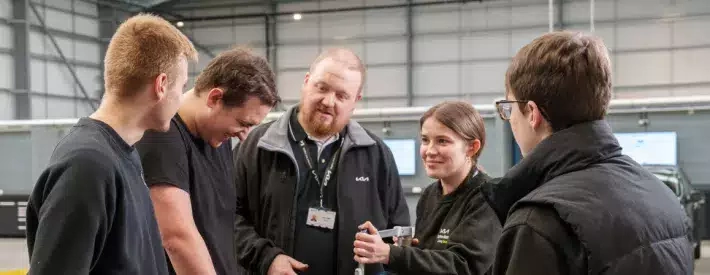How the rise of Further Education Lecturer Reservists is helping bridge the education gap

In recent years, the UK has faced a critical shortage of skilled lecturers, particularly in the fields of science, technology, engineering, and mathematics (STEM). The traditional educational model, which often required professionals to leave their industry roles to enter teaching, has not sufficed to meet the growing demands of an evolving workforce. However, a ground-breaking initiative, inspired by military reservists, promises to reshape how industry professionals contribute to education without relinquishing their roles in the workforce.
The Further Education Lecturer Reservists (FELR) initiative, developed by the IMI in collaboration with the Warwick Manufacturing Group (WMG), proposes a flexible, agile approach. It allows professionals to participate as lecturer reservists — teaching part-time while continuing their industry roles. This model is designed not only to fill the immediate skills gaps in education but also to ensure that teaching content remains relevant and up-to-date with industry standards and advancements.
The challenge
For decades, the UK's engineering and manufacturing sectors have been pivotal to its economic success. However, these sectors are at a crossroads, largely due to rapid technological advancements and a parallel growth in demand for skilled professionals. Traditional recruitment channels and educational models have struggled to keep pace. According to data from the Association of Colleges, about 62% of colleges reported shortages in engineering staff, with vacancies in key STEM areas more than doubling since the COVID pandemic.
The FELR Solution
The FELR initiative draws inspiration from the structure and support provided to military reservists. It offers similar protections and flexibility, ensuring that industry professionals can engage in teaching without compromising their career trajectories. This model not only enriches the academic experience by bringing current industry knowledge and practices into the classroom but also enhances the professional development of the reservists through continual learning and networking opportunities.
FELRs are envisioned to serve as bridges between academia and industry, facilitating internships, research collaborations, and knowledge exchange. This integration helps to maintain a curriculum that is both practical and progressive, aligning closely with the skills actually required in the workplace. Moreover, the initiative supports existing educational staff by providing them with insights and training on emerging technologies and industry trends, thereby elevating the overall teaching quality.
Community and economic impact
The socio-economic implications of the FELR initiative are profound. By effectively bridging the gap between industry and academia, the program not only prepares students for real-world challenges but also drives economic growth by fostering a more skilled workforce. This is particularly crucial as the UK seeks to solidify its position in manufacturing and technology on the global stage.
Moreover, the FELR program promotes a culture of lifelong learning and mutual support, enriching the community and strengthening ties between various sectors. Such collaboration is essential in an era where the lines between different disciplines are increasingly blurred, and innovation often happens at these intersections.
Looking to the future
With formal endorsements and pilot programmes already underway, particularly in the West Midlands, the FELR initiative is set to expand. Its integration into national education and skills policy appears imminent, promising a robust framework for its sustainability and success. Initial feedback from stakeholders — including educational institutions, industry leaders, and policy makers — has been overwhelmingly positive, highlighting the initiative's potential to significantly enhance the quality of technical education and training across the UK.
Engaging with the initiative
The success of the FELR initiative depends not only on institutional support but also on the willingness of professionals to engage with the system. It calls for a paradigm shift in how we view the roles of industry and education in society. By participating in this initiative, professionals have a unique opportunity to give back to their industries and help shape the future workforce.
As we look to a future where education and industry are more interconnected than ever, the FELR model stands out as a beacon of innovation and practicality. It exemplifies how thoughtful, coordinated efforts can address longstanding challenges in education and workforce development. For the UK, this isn't just an educational reform; it's a strategic enhancement of its economic and societal fabric, ensuring that it remains competitive in an increasingly complex global landscape.
As this initiative unfolds, it will undoubtedly serve as a model for other sectors and countries, illustrating the power of flexibility, collaboration, and foresight in shaping the educational experiences of tomorrow.
Hayley Pells is Policy and Public Affairs Lead at the IMI.




